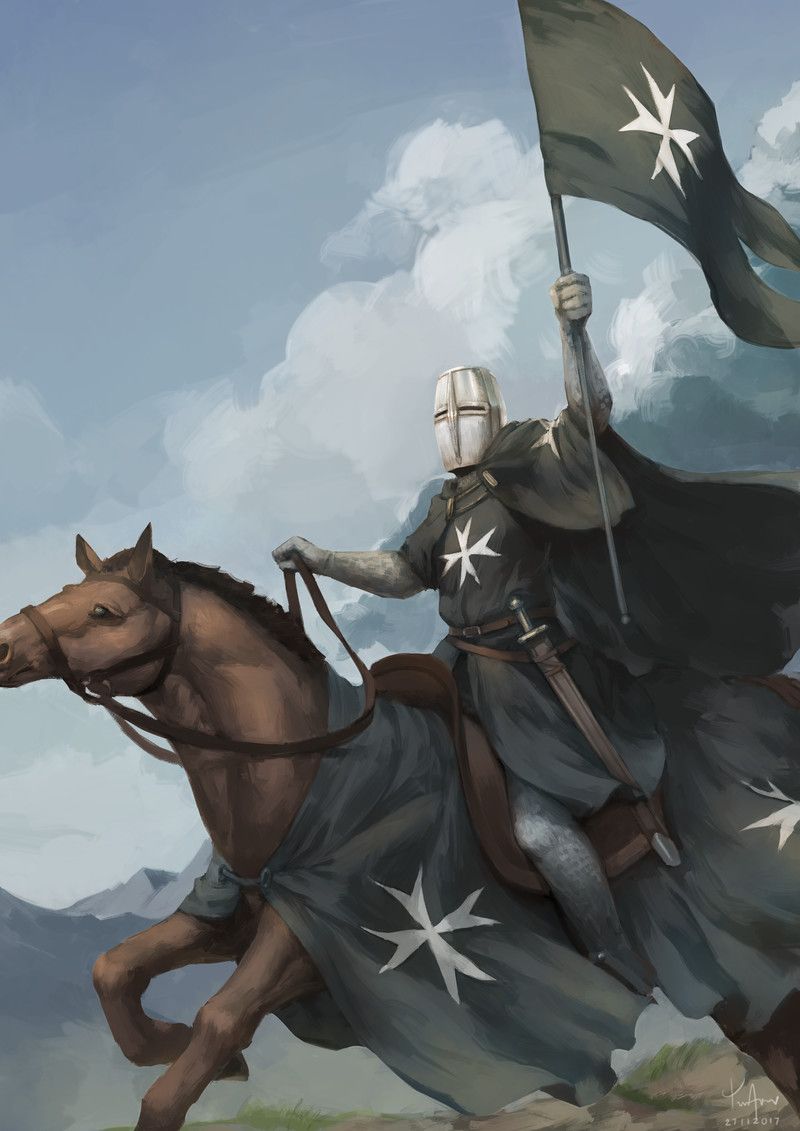
War of the Antiochene Succession
SyriaGuérin de Montaigu was elected Grand Master in the summer of 1207. He was described as "the figure of one of the greatest masters of whom the Hospital has reason to be proud." He is believed to be the brother of Pierre de Montaigu who served as Templar Grand Master from 1218 to 1232. Like his two predecessors, Montaigu found himself involved in the affairs of Antioch in the War of the Antiochene Succession, begun with the opening of the will of Bohémond III of Antioch. The will directed his grandson Raymond-Roupen as successor. Bohémond IV of Antioch, second son of Bohémond III and Count of Tripoli, did not accept this will. Leo I of Armenia, as the maternal great-uncle, took the side of Raymond-Roupen. However, without waiting for the death of his father, Bohémond IV had taken possession of the principality. The Templars had aligned themselves with the bourgeoisie of Antioch and az-Zahir Ghazi, the Ayyubid sultan of Aleppo, while the Hospitallers sided with Raymond-Roupen and the king of Armenia.
When de Montaigu took over the Hospitallers, nothing had changed. Leo I of Armenia had made himself master of Antioch and had re-established his grand-nephew there. But it was of short duration, and as the Count of Tripoli remained master of the city. Leo I supported his claims by confiscating the Templars' property in Cilicia, ruining Antioch's trade by raids, and even risking excommunication in 1210–1213. An agreement was reached between the king and the Templars, and the excommunication was revoked. On 14 February 1216, Antioch was put in the hands of Leo I and of his nephew Raymond-Roupen. The Antiochene nobility allowed the return of Bohémond IV and the escape of Raymon-Roupen, who later died in 1222.
Bohémond IV exacted his revenge on the Hospitallers, taking back the castle of Antioch from them and their possessions of Tripoli were undermined. Honorius III interceded in their favor in 1225 and 1226, and his successor Gregory IX excommunicated Bohémond IV in 1230. He authorized Gerald of Lausanne, the Latin patriarch of Jerusalem, to lift the ban if Bohémond agreed to make peace with the Hospitallers. With the mediation of Gerald and the Ibelins, Bohemond and the Hospitallers agreed to a treaty which was signed on 26 October 1231. Bohémond confirmed the Hospitallers' right to hold Jabala and a nearby fortress and granted them money fiefs in both Tripoli and Antioch. The Hospitallers renounced the privileges that Raymond-Roupen had granted to them. Before long, Gerald of Lausanne lifted the excommunication and sent the treaty to Rome to be confirmed by the Holy See.
